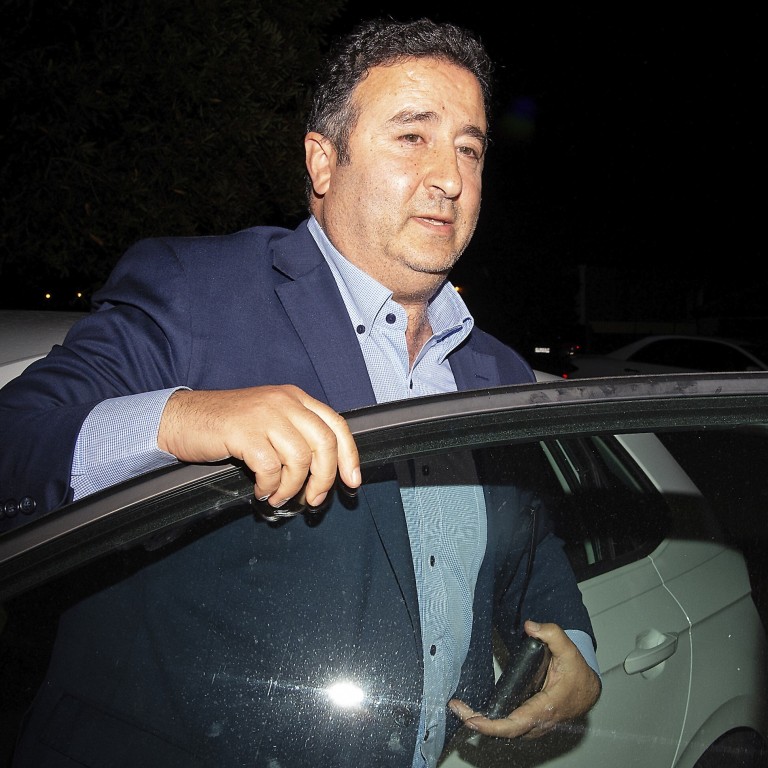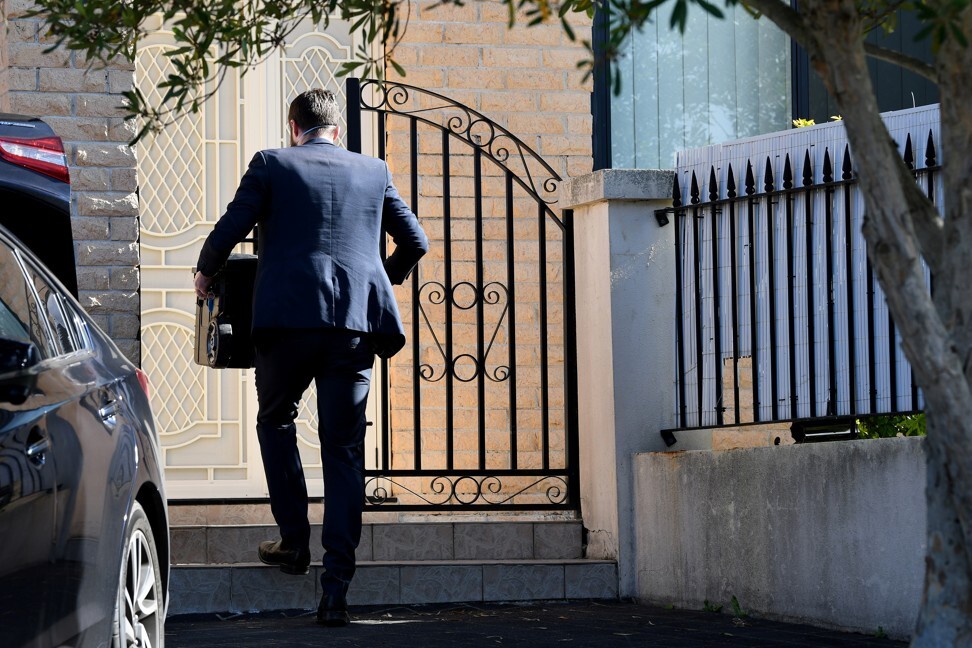
Raid on Australian MP Moselmane highlights insecurity, fearmongering: analyst
- Allan Behm says raids such as those on Shaoquett Moselmane and Chinese journalists were done for political effect and to intimidate people
- Uncertainty amid strained China-Australia ties and the coronavirus pandemic has seen insecurity and prejudice rise, like in the McCarthy era
The target of the raids by the Australian Federal Police (AFP) and Australian Security Intelligence Organisation (ASIO) was allegedly John Zhang, one of several part-time staff members working for Moselman, a member of parliament for New South Wales from the opposition Labor Party.
Australian MP Moselmane denies wrongdoing after home raided over China links
Zhang, an Australian citizen who runs his own business selling eyewear, had translated Moselmane’s speeches into Chinese. He denied all allegations against him and has launched a High Court challenge on the validity of a police warrant relating to the investigation.
This Week in Asia spoke to Allan Behm, head of the International and Security Affairs Programme at The Australia Institute, a Canberra think tank. Behm held senior positions in the Attorney General’s Department and the Department of Defence in the 1980s and 1990s. He was chief of staff to former cabinet minister Greg Combet and senior adviser to Penny Wong, the former cabinet minister and current shadow minister for foreign affairs.
Q: What do you make of the raid on Moselmane?
Behm: What we had, in the first instance, was the Australian intelligence (ASIO) and police authorities (AFP) conducting raids on the houses of Australian citizens who were “of interest”. But Moselmane said [to the media] the AFP told him there was no evidence that he was involved in any form of foreign interference or that he was subject to foreign interference.
They were probably more interested in what John Zhang, Moselmane’s translator, was actually doing. To be quite frank, I have no idea what Zhang was doing except that he was translating the upper house member’s speeches into Mandarin so that the people in his electorate could read them.
As a little “thought experiment”, if I’d asked somebody who is a Mandarin speaker resident in Beijing to do that, I suppose I could have my house raided because I may be dealing with somebody who may or may not be a member of the Chinese Communist Party, but who sells their services as a professional translator.
Now, what we then have is the security agencies, with the Australian media in tow, which in my opinion is a shocking thing to do … making a public display of a person who has not been charged with anything.

Q: Are these kinds of dawn raids common in Australia and elsewhere? What about having media present?
Behm: I mean, short of some kind of family disaster, you don’t expect to see a police officer [at 5am]. It was a famous technique in Moscow in the 1930s, where they did it at 2 o’clock in the morning because it was even more terrifying. There can be nothing accidental about the timing of a visit by the police.
And the Chinese security authorities, they bang on the door at about midnight. It’s all about intimidation to make the person nervous and off guard. A person can self-incriminate quite easily when they haven’t got their marbles together.
Neither is it common to have media present with floodlights and them taking pictures. Raids are now done for political effect and done in a way that intimidates the population and at the same time gives the population the confidence that its fears are being addressed. So it’s a clever, if cynical, thing to do. You create the fear and then tell everyone you’re fixing it.
Yet, this is lawful. Statutory amendments since 9/11 give ASIO the powers of entry, and powers of interrogation rather than questioning – they have always had the power to question people.
Q: Why is there so much anxiety, some would say paranoia, towards Australians with Chinese ethnicity or dealings with China?
Behm: I think what we’re seeing at the moment is the global community dealing with a coronavirus, and all of the human security and economic security consequences of that – people out of work, locked down in their houses.
There is also a sort of fundamental insecurity, which always rises very, very quickly to the top in Australia, when there’s a time of uncertainty. And there’s the tyranny of distance. Many Australians do feel that they’re at the end of the world and a long way from everywhere … there is a sense of isolation.
Why are Chinese-Australians having their national loyalty questioned?
And the government’s response to this uncertainty is to beef up a bit more securitisation – turning social and political problems into security and law enforcement problems.
So now we have intelligence agencies creating a role for themselves in the formation of public policy. This is very worrying. Because it means that important parts of our domestic and international policy are not run by the Foreign Affairs Department but by the CIA, or FBI or NSA or ASIO or someone else, each of which has a barrow to push and they can create policy options that may be extremely narrow and negative in their impact.
Q: Is McCarthyism coursing through Australia and should we be worried?
I think it’s a really good question to ask if we are [globally] heading back to that time in the 1950s where paranoia was actually the driving force for US domestic policy.
I think my answer to it is no. I don’t have any evidence for a sort of rampaging paranoia across the world. But at the same time, I cannot prove the alternative, I can’t prove that there isn’t [McCarthyism] because people’s behaviour can be at the very least irrational, reflecting phobias and some of the darker aspects of the national make-up.
Morrison criticised for not directly condemning senator who asked Chinese-Australians to denounce CCP
But fear is, I think, very deeply ingrained in the Australian character. We put neutral words around that word “race”, for instance, which we express as sensitivity to “the other”. But it means racism. It is the explanation for our inability to come to an accord with indigenous Australia.
It is what happened when terrorism was the big flavour of the day so that anybody who looked as though they might come from Lebanon or Saudi Arabia attracted the racial stereotype “of Middle Eastern appearance”. What that in fact did was to demonise and stir up community fear of people who go to the mosque on Friday.
In the end, if you can’t produce the evidence, fear mongering is the result of racial prejudice. And that is where it is like McCarthyism.
The transcript has been edited for clarity

